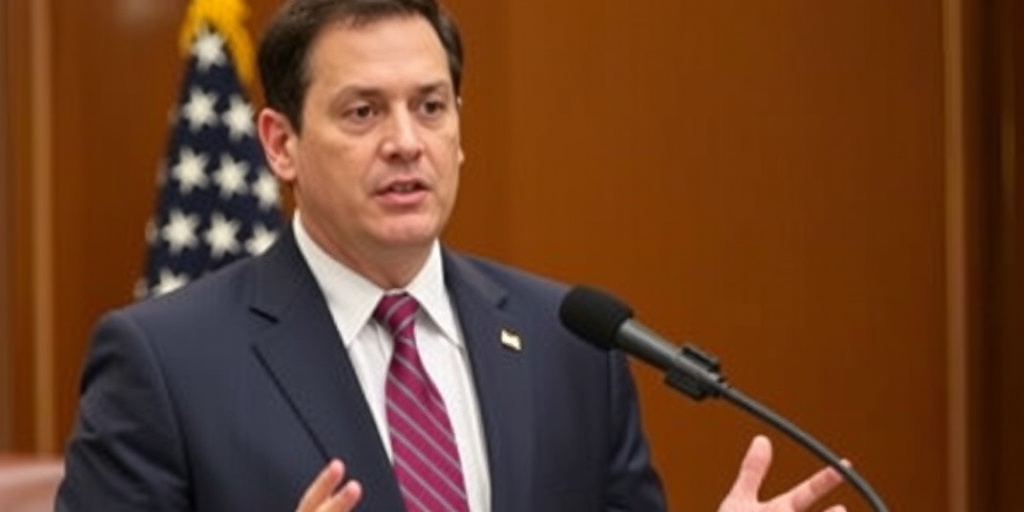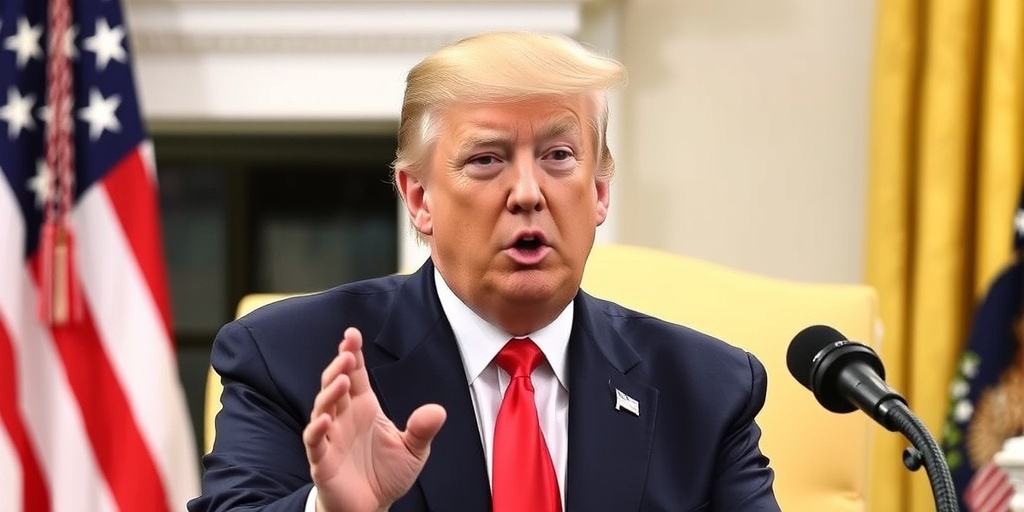Now Reading: Fact-Checking USAID Funding Claims
-
01
Fact-Checking USAID Funding Claims
Fact-Checking USAID Funding Claims

In recent developments, the Trump administration, along with its allies in Congress, has intensified its efforts to dismantle the U.S. Agency for International Development (USAID), targeting it as a source of alleged mismanagement of taxpayer funds. Despite their claims, many of these accusations have been criticized for being misleading or lacking essential context.
USAID has long been a focal point of criticism from conservative factions that challenge the efficacy of foreign aid. In the past week, the agency has experienced significant turbulence, marked by a freeze on foreign aid for 90 days and a subsequent announcement from the Trump administration regarding substantial cuts to the agency’s workforce. However, a federal judge intervened with a temporary injunction against aspects of this plan on Friday.
These swift and sweeping actions against USAID are part of a broader initiative by President Trump and his supporters to reduce government spending across multiple federal programs. In light of these changes, a fact-checking analysis has begun to scrutinize claims related to the agency’s handling of funds.
One notable assertion came from Secretary of State Marco Rubio, who claimed during a press conference that “in some cases with USAID, 10, 12, 13 percent, maybe less, of the money was actually reaching the recipient, and the rest was going into the overhead and the bureaucracy.” This statement drew criticism for being misleading. Rubio’s claim likely referenced a report indicating that approximately $2.1 billion, or 12.1 percent of USAID’s funding, is directed towards local partners. However, this does not imply that the majority of the funds were lost in administrative costs.
USAID has consistently aimed to allocate more resources directly to local entities, yet many projects are still facilitated through partnerships with international organizations and American non-profit groups, which further complicates the narrative of inefficiency. For instance, Catholic Relief Services, a non-local entity, has received extensive funding from USAID to conduct charitable activities abroad.
According to a 2024 analysis from the Congressional Research Service, a significant portion of USAID’s budget—approximately two-thirds—is earmarked for project-based assistance. This includes contributions to international organizations like the World Food Program and only a small fraction is directed toward administrative costs.
In an aggressive statement, White House Press Secretary Karoline Leavitt described several programs funded by USAID as examples of “federal waste.” She cited a $20 million grant for a new “Sesame Street” show in Iraq and $2 million allocated for gender-affirming healthcare in Guatemala. However, her portrayal lacked nuance and context, leading to an exaggerated narrative surrounding the agency’s expenditures.
Leavitt’s remarks were noted to be largely inaccurate concerning the details of the projects referenced. While she did mention legitimate grants, she omitted essential context that would clarify their purposes and impacts. For example, the $2 million for sexual health services in Guatemala was intended to support comprehensive healthcare options—including gender-affirming services—and economic empowerment initiatives for LGBTQ individuals, rather than solely funding surgical procedures.
Furthermore, Leavitt cited a $6 million grant in Egypt but inaccurately framed it as a tourism expenditure. The funds were, in fact, part of a broader bilateral assistance agreement that focused on educational opportunities and economic development in North Sinai, with no mention of tourism.
Speaker Mike Johnson echoed similar criticisms regarding U.S. funding efforts. His assertions about USAID funding, including claims that taxpayer dollars were being used for “transgender operas” and “drag shows,” have been challenged for being misleading since these examples stem from grants issued by the State Department, not USAID.
To clarify, the State Department indeed solicited funding for projects that aimed to promote religious freedom and protect the rights of diverse communities, including atheists and non-religious individuals. An award related to this issue drew scrutiny from Republican lawmakers who perceived it as promoting atheism instead of fostering tolerance and religious freedom.
Despite the critical backlash aimed at USAID, it is important to recognize the complexity of foreign aid funding and the roles different government bodies play in administering these grants. As investigations into USAID’s funding practices continue, the debate around its effectiveness and the appropriateness of its expenditures remains a focal point of political contention in the U.S. government.
Stay Informed With the Latest & Most Important News
Previous Post
Next Post
-
 01New technology breakthrough has everyone talking right now
01New technology breakthrough has everyone talking right now -
 02Unbelievable life hack everyone needs to try today
02Unbelievable life hack everyone needs to try today -
 03Fascinating discovery found buried deep beneath the ocean
03Fascinating discovery found buried deep beneath the ocean -
 04Man invents genius device that solves everyday problems
04Man invents genius device that solves everyday problems -
 05Shocking discovery that changes what we know forever
05Shocking discovery that changes what we know forever -
 06Internet goes wild over celebrity’s unexpected fashion choice
06Internet goes wild over celebrity’s unexpected fashion choice -
 07Rare animal sighting stuns scientists and wildlife lovers
07Rare animal sighting stuns scientists and wildlife lovers





















